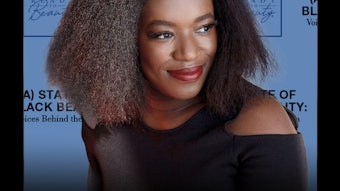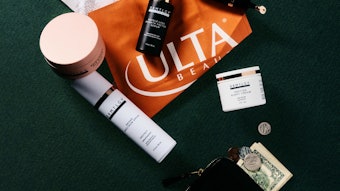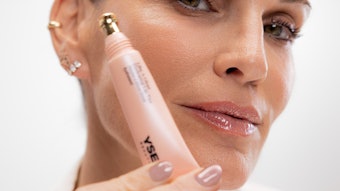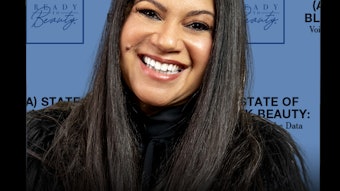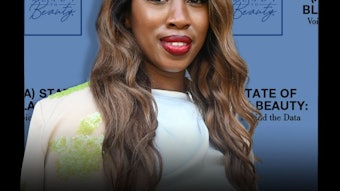Celebrity endorsements are one of the leading elements of successful brands around the world. Ryan Sager, writing for SmartMoney.com, notes that celebrities appear in nearly one-fifth of all ads, and large companies like Nike might spend half a billion dollars a year on finding (and keeping) the right celebrity associated with its brand. Clearly, as a means of connecting with and motivating consumers, celebrity is here to stay in a very big way, and only trending to get bigger. But if your brand wants to get on the celebrity bandwagon, a targeted strategy to choosing and working with the right celebrity must be implemented early on.
Successful celebrity endorsements (which can be just as compelling with B, C or D list celebrities as they are A list celebrities) can be as powerful as the magical million dollar SKU or as weak as the proverbial weakest link, but one thing they should never be is arbitrary. As when creating the other elements of a successful brand—positioning, messaging, taglines and visual identity—establishing a celebrity endorsement campaign should never be a matter of chance or left to the last minute. Not only does this celebrity need to stand for your brand in market, she must be inspirational, aspirational and, let’s face it, a good salesperson. The only way you can ensure your choice meets all of these criterion is to pick carefully, test wisely and then test again.
Who You Pick
Celebrities sell us everything from cars to homes to food to skin care. Some are emotionally driven (Kirstie Alley for Jenny Craig); some are results-driven (Julianne Hough for Proactiv); some are corporately driven and potentially not even a traditional celebrity at all (Tom Ford for Estée Lauder), and yet the one quality they all share in common is money—they are all financially driven. Brands form celebrity endorsements in the hopes that attaching their name to a particular celebrity will drive initial sales and, importantly, repeat business. But even though the ultimate goal of linking your brand to an actress, model or designer may be to help guarantee consumer interest and purchase, this goal will fall woefully short if the celebrity you choose to represent your brand isn’t the ideal fit or the right face.
Knowing these answers is not just a matter of asking are they the right age and if they have the right hair color. You also have to take into account their personality and energy level, and the DNA they bring to your brand. When Avon relaunched with Reese Witherspoon, the vibrant DNA of a successful, young actress was part of the package, and millions of potential new consumers took a fresh look at Avon and saw a brand that fit them.
Conversely, when St. John launched a campaign with Angelina Jolie, the DNA of a successful young actress also came with the package but to fairly opposite results. Jolie’s image was at odds with St. John’s from the outset, regardless of the fact that she’s a gorgeous, aspirational woman. Her DNA did not (and indeed, never likely could) translate to an iconic brand like St. John, no matter her appeal as a star.
Who your intended celebrity might appeal to (and who they might turn off), as well as how available they are going to be for branding events and PR opportunities, among other elements, are also critical. Whatever branch of the beauty world your brand is ready to take by storm—acne, anti-aging, lightening, cellulite or something else—you must choose a face that consumers will look at and say, “I believe this brand benefited her, and I believe it will benefit me. She’s like me, so this brand must be for me.”
Even more important, the consumer must be able to look together at your brand and the celebrity you’ve chosen to endorse it and transfer the DNA of both to herself with an implicit trust that this combination will give her the results she’s seeking and you are promising.
Why You Pick Them
As great as it would be to secure any celebrity you wanted to endorse your brand, the reality is the selection process isn’t that simple or that easy. Whenever a face is being considered for a new brand (or a new face is being considered for an established brand), it is imperative to go to the source—your consumer—and test out the appeal of this celebrity with the demographic you are hoping to influence.
One of the key points of getting a celebrity to endorse your brand is to shock your brand into awareness, or build a groundswell of awareness as you hit the market. In order to shock your audience in the right way, you need to know what they think of your celebrity, down to the smallest degree. What do they think of her look, her smile? Do they think she fits the brand and all that the brand stands for (or is promising)? Most importantly, do they believe she fits the brand?
Once you have tested the image of the celebrity you are considering in conjunction with your brand’s name, tagline and messaging, you have a much deeper insight into the feasibility and believability of your brand’s association with the celebrity. We all know that just seeing a celebrity is often enough to drive interest in a brand initially, but the real measure of success will be when your chosen celebrity continues to inspire interest long after she has made her debut with the brand.
A guided, focused consumer test can help you tease out the nuances of the celebrity, which may or may not resonate with consumers, as well as the reasons for this resonation or lack thereof. As an open forum where consumers can speak their minds, these tests distill critical information that might otherwise get missed, and that will make a distinct difference in the success of your endorsement and your brand.
What It Takes for Success
According to Brand Strategy Insider, a successful celebrity endorsement must have three key criterion: an attractive celebrity, a credible celebrity, and a meaningful transfer between the celebrity and the brand. Just as a great tagline can make your brand name stand out, a great celebrity face can transform your brand from a niche offering to a household name. If I say Michael Jordan, Bill Cosby, Ellen DeGeneres, Julia Roberts or Diane Keaton, what brands immediately come to mind? The fact that several of these endorsements are decades old is testament to the success of that brand partnership. Will anyone really champion Jell-O quite like Cosby, and who among us doesn’t want to dance like Ellen before swiping our American Express cards?
Each of these celebrities is attractive, has credibility within their profession, and has created a very successful link (or transfer) between the brand and consumers in a completely synergistic and cohesive way. Perhaps even more importantly, each of these celebrities also has transferred their DNA to the brands they represent, as well as the consumers who use the products they endorse. I may not be Ellen DeGeneres, but when I’m out shopping with my Amex card, you’d better believe somewhere in the back of my mind is a small mental image of how happy Ellen looks while shopping with her card—and indeed, how happy I, too, feel when shopping with mine.
For a celebrity endorsement to be truly successful, consumers must believe the person selling them their face cream or their shoes or their breakfast sandwich is just like them, i.e., attractive, smart and engaging. In this way, even a small brand can make a huge impact. When Jabot Cosmetics launched, Tracey E. Bregman, a successful Hollywood actress for more than 20 years but with relatively little in-market consumer awareness, was the face, and she was a brilliant fit. Consumers loved her, and it showed in the numbers.
By carefully vetting out and choosing the right celebrity and positioning her in front of your brand in a compelling way, a successful celebrity endorsement generates powerful external cues that help consumers navigate the marketplace to your brand and then stay loyal.
Alisa Marie Beyer is the founder and creative director of The Beauty Company (TBC), a global beauty consulting firm offering business, strategy, consumer intelligence and branding. Serving its clients at every stage of development (from start-ups to 13 of the top 15 global beauty companies), TBC intimately understand the industry, the consumer and the market, and becomes an integral part of each client or project team. [email protected]; thebeautycompany.co

